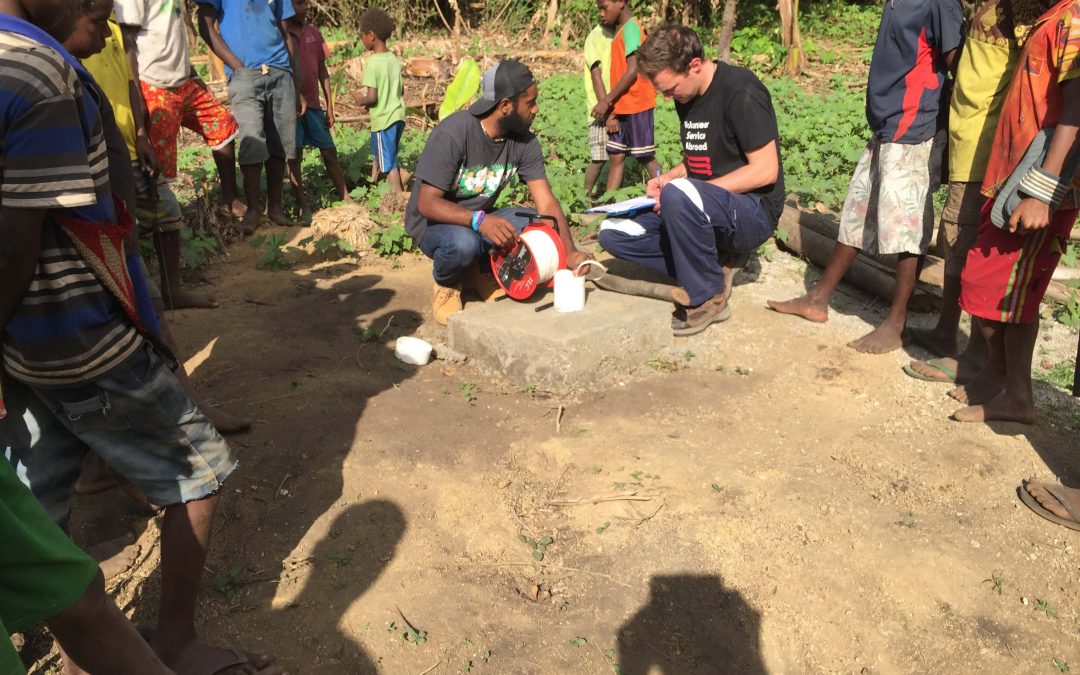Groundwater is a vital resource in Vanuatu in which many depend on for their daily use. In a changing climate and with a growing population, demand for this resource is continuing to grow. Vanuatu’s archipelago consists of many small reef and volcanic islands which make this resource difficult to extract due to it only existing within a thin freshwater lens. Many boreholes in coastal areas have become too saline for human consumption and there are challenges with drilling new boreholes that will not also suffer the same fate.
Especially in times of drought, groundwater is relied on for drinking water and consuming high salinity water leads to numerous negative health effects. Engineers are needed in order to determine target drilling sites that have low risk of encountering saline contamination. This is done either by extrapolating data collected through existing boreholes in the field or by the use of geophysics.
EWB is doing extensive engineering work in the WASH sector in Vanuatu, including making groundwater accessible to local communities. Our team focus to provide specialist technical capacity – design, prototyping, construction, maintenance and education – for appropriate WASH systems.
World Engineering Day for Sustainable Development, on the 4th of March, celebrates the work of engineers such as the EWB team in Vanuatu. It was recently founded by the United Nations Educational, Scientific and Cultural Organisation (UNESCO) and was first announced at the World Engineers Conference (WEC) in 2019. The day acknowledges the contribution engineering makes to sustainable development and modern life. Backed by more than 40 nations, this day now represents 23 million engineers worldwide, and addresses the need for engineering capacity to continue global development (WED, 2019).
World Engineering Day aligns closely with the 17 Sustainable Development Goals (SDGs); the UN’s blueprint to achieve a better and more sustainable future for all by 2030. One crossover between engineering work and the SDGs is Water, Sanitation and Hygiene (WASH). With water scarcity affecting more than 40% of the world’s population, engineers are urgently needed to help design and implement WASH initiatives (UN, 2019).“If you want to change the world for the better, become an engineer.”
Pictured: Testing pump and water quality on newly drilled bores, Middlebush,Tanna, Vanuatu (October 2019).
This project receives support from the Australian Government through the Australian NGO Cooperation Program, the New Zealand Ministry of Foreign Affairs and Trade (MFAT) and through the generous support of individual donors.


